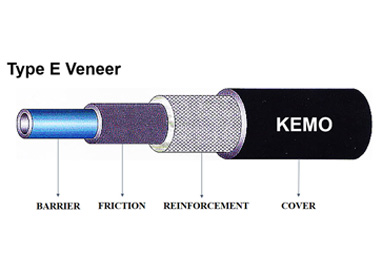Optimizing Brake Pipe Line Performance for Enhanced Vehicle Safety and Efficiency
ធ្នូ . 02, 2024 07:10 Back to list
Optimizing Brake Pipe Line Performance for Enhanced Vehicle Safety and Efficiency
Understanding Brake Pipe Lines Essential Components of Vehicle Safety
The brake system in any vehicle is a crucial aspect of its overall safety and functionality. Among the various components that contribute to an effective brake system, the brake pipe line plays a vital role. Understanding the importance, function, and maintenance of brake pipe lines is essential for any vehicle owner or enthusiast.
What are Brake Pipe Lines?
Brake pipe lines, commonly referred to as brake lines, are tubes or pipes that transport brake fluid from the master cylinder to the brake calipers or wheel cylinders. These lines are integral to the hydraulic brake system, which relies on fluid pressure to activate the brakes when the driver presses the brake pedal. The brake lines must be durable, capable of withstanding high pressure, and resistant to environmental factors such as corrosion and temperature variations.
The Function of Brake Pipe Lines
When the brake pedal is pressed, it engages the master cylinder, which generates hydraulic pressure. This pressure travels through the brake lines and reaches the brake components at each wheel. Once the hydraulic pressure reaches the brake calipers (in disc brakes) or wheel cylinders (in drum brakes), it forces the brake pads or shoes against the brake rotor or drum, effectively slowing down or stopping the vehicle.
The efficiency of this process can be affected by the condition of the brake lines. If the lines are cracked, corroded, or damaged in any way, it can lead to brake fluid leaks, resulting in reduced brake effectiveness. In severe cases, a complete brake failure can occur, posing a significant risk to the driver and other road users.
Types of Brake Pipe Lines
There are several types of materials used for brake lines, each with its own advantages and disadvantages
brake pipe line

1. Rubber Brake Lines These are commonly found in many vehicles as flexible brake lines. They provide some flexibility, allowing for movement in suspension systems. However, they can wear out over time, leading to potential leaks.
2. Metal Brake Lines Typically made from steel or stainless steel, these rigid lines offer better protection against leaks and damage. They are less prone to expansion under high pressure but can corrode over time, especially when exposed to the elements.
3. Composite Brake Lines In recent years, composite brake lines have emerged as a lightweight alternative. They offer excellent resistance to corrosion and do not suffer from many of the drawbacks associated with traditional materials.
Maintenance and Safety
Proper maintenance of brake pipe lines is crucial for ensuring the overall safety of a vehicle. Regular inspections should be conducted to check for signs of wear, corrosion, or fluid leaks. Owners should also be mindful of any changes in brake performance, such as a soft brake pedal or unusual noises when braking, as these can be indicators of problems with the brake lines.
If a leak is detected, it is essential to address it immediately. Drivers should resist the temptation to delay repairs; doing so can lead to more extensive damage and unsafe driving conditions. When replacing or repairing brake lines, using high-quality components and ensuring proper installation is vital.
It is also worth noting that brake fluid has a limited lifespan, absorbing moisture over time, which can lead to the internal corrosion of brake lines and reduced braking efficiency. Therefore, regular brake fluid changes are recommended based on the manufacturer’s guidelines.
Conclusion
In summary, brake pipe lines are essential components of a vehicle's braking system, playing a critical role in ensuring safety and performance. Understanding their function, types, and maintenance needs can help vehicle owners take proactive steps to maintain their brakes effectively. Regular inspections and timely repairs can prevent accidents and ensure that every drive is as safe as possible. Always remember, a vehicle's stopping power is just as important as its acceleration; don’t overlook the significance of the brake pipe line in your vehicle’s overall safety profile.
